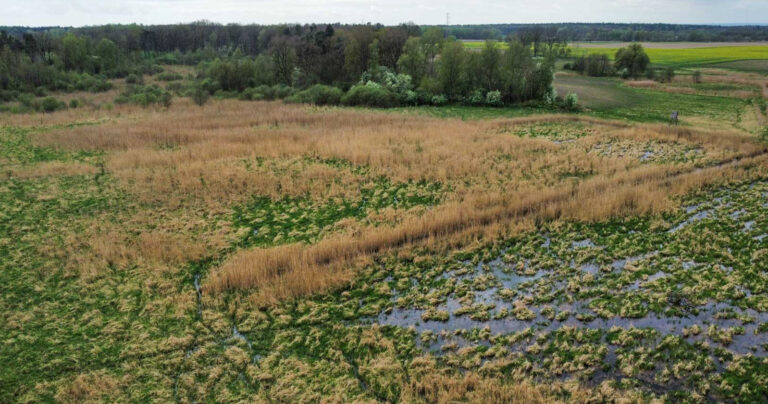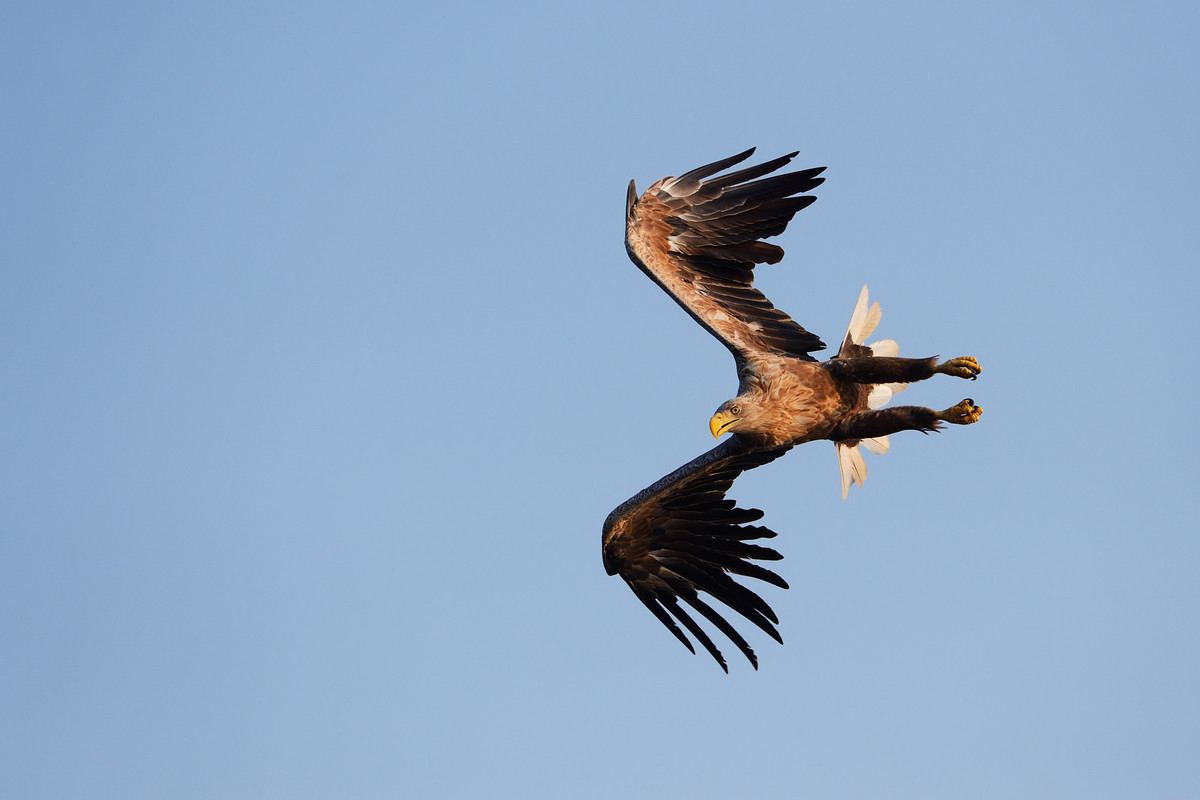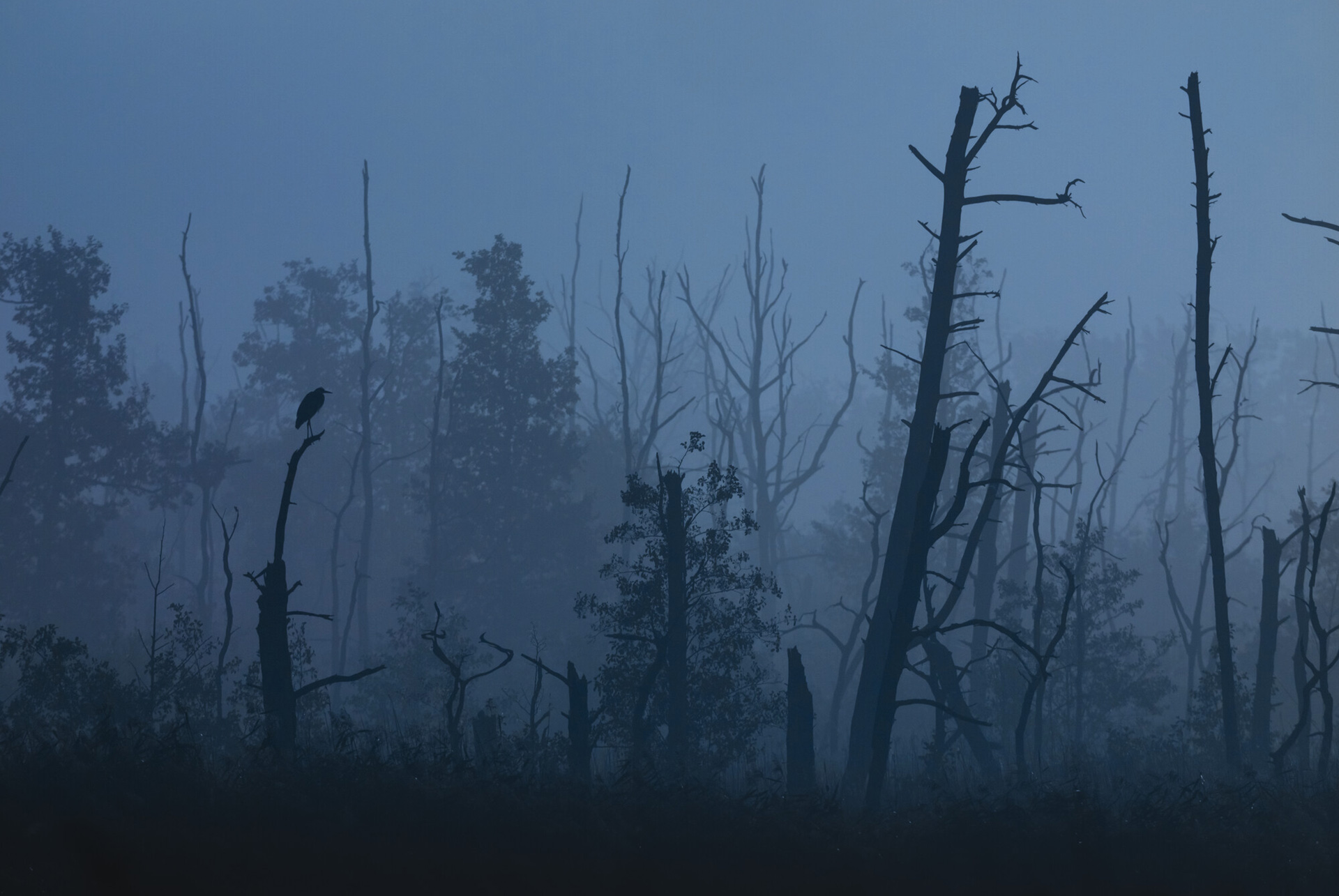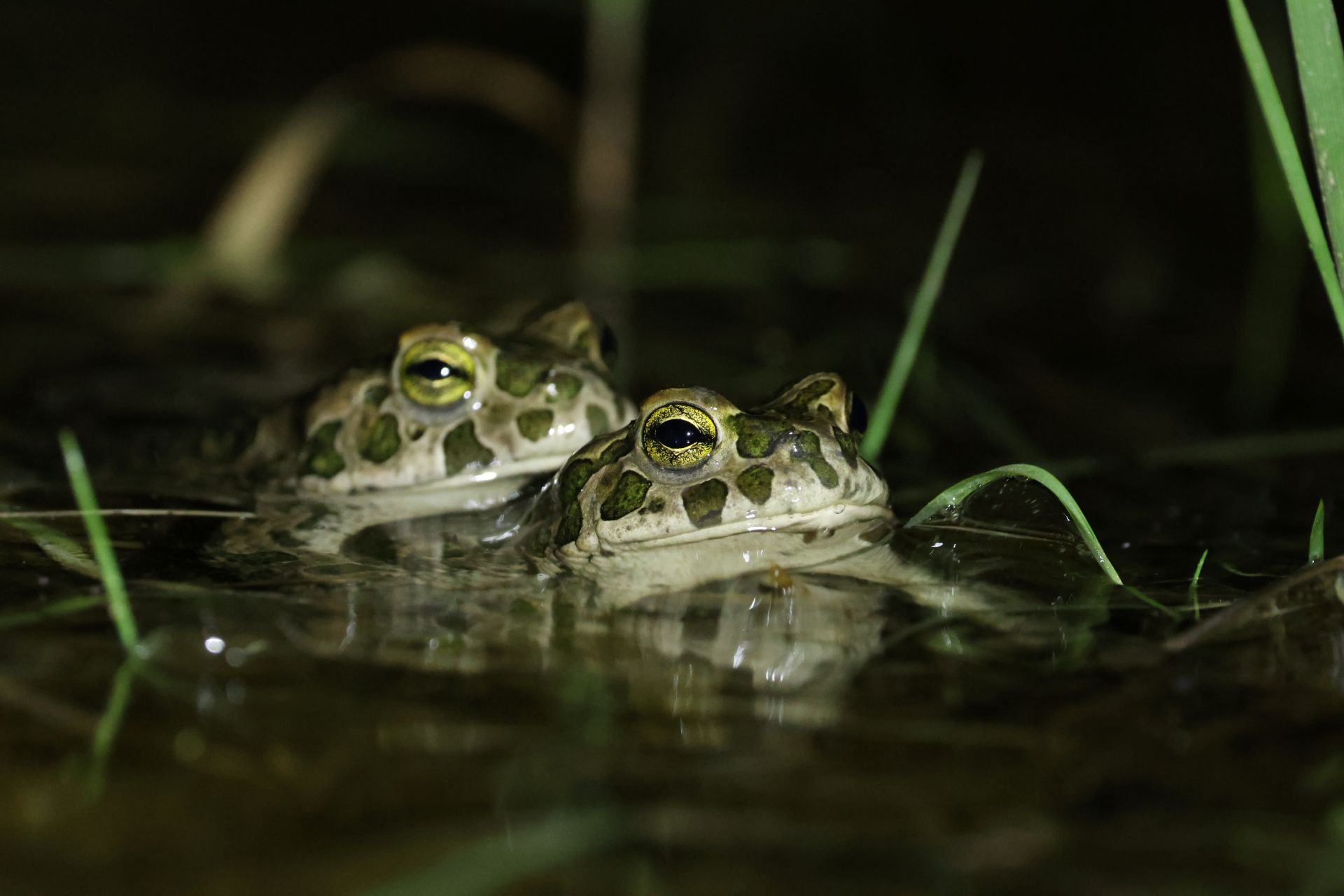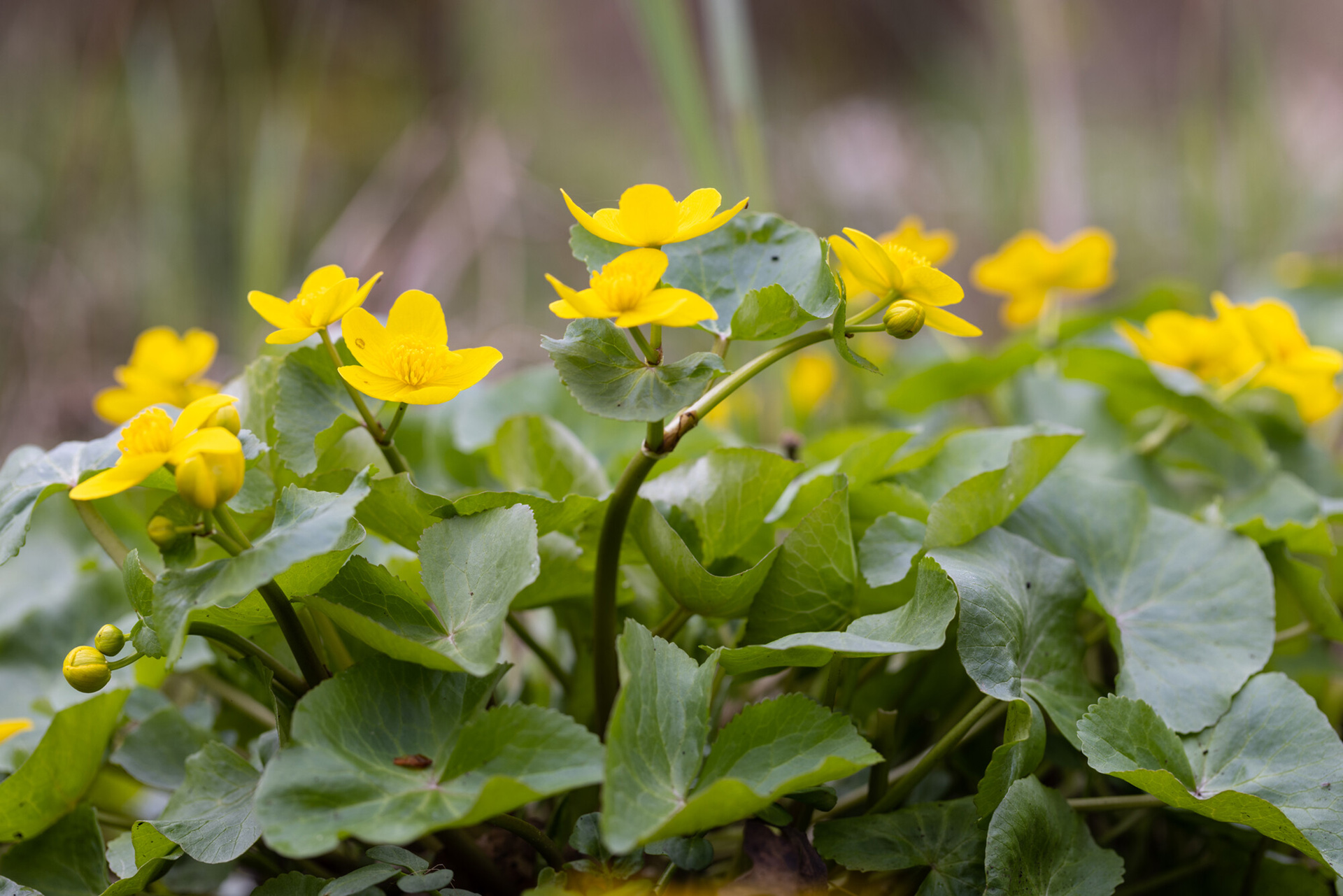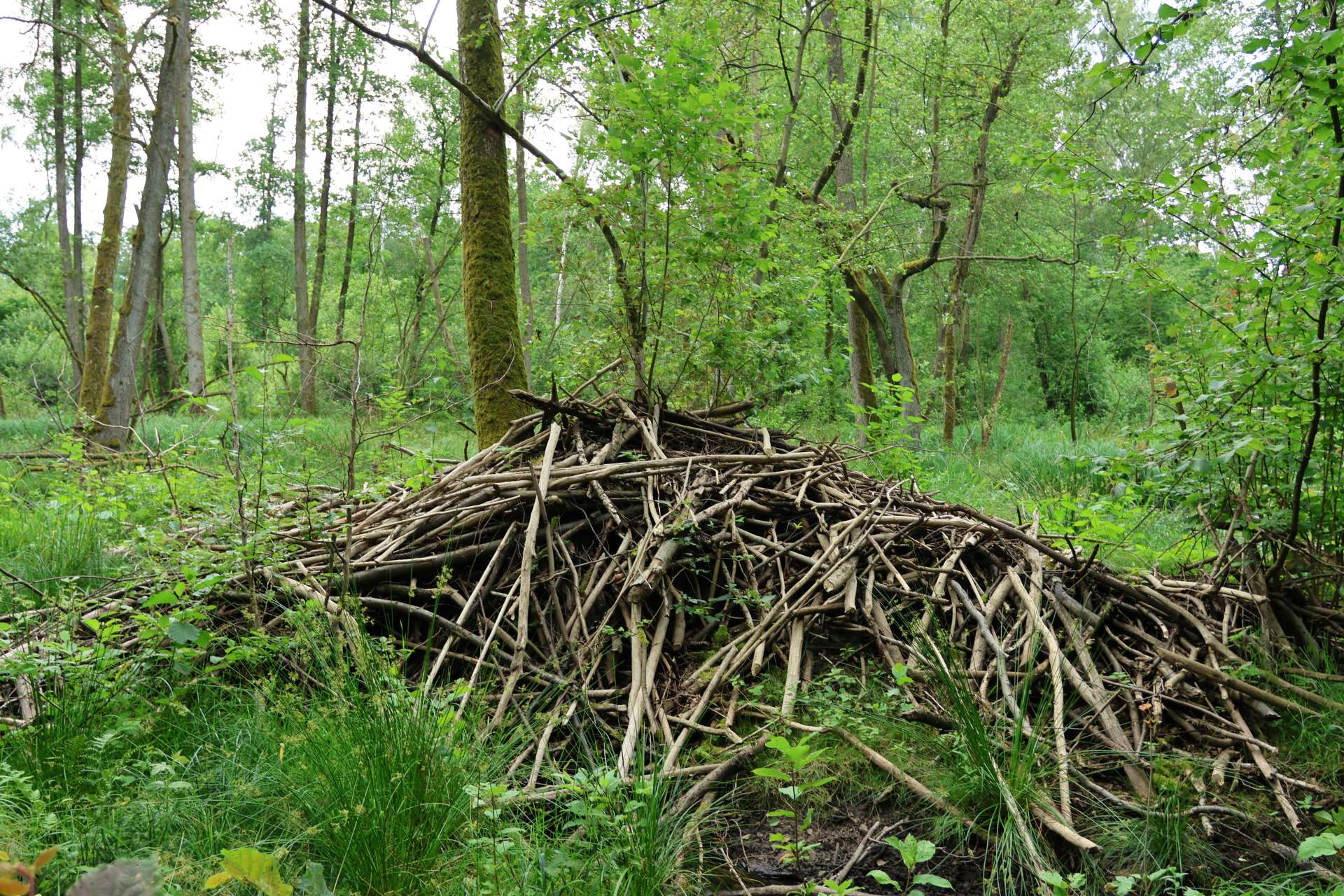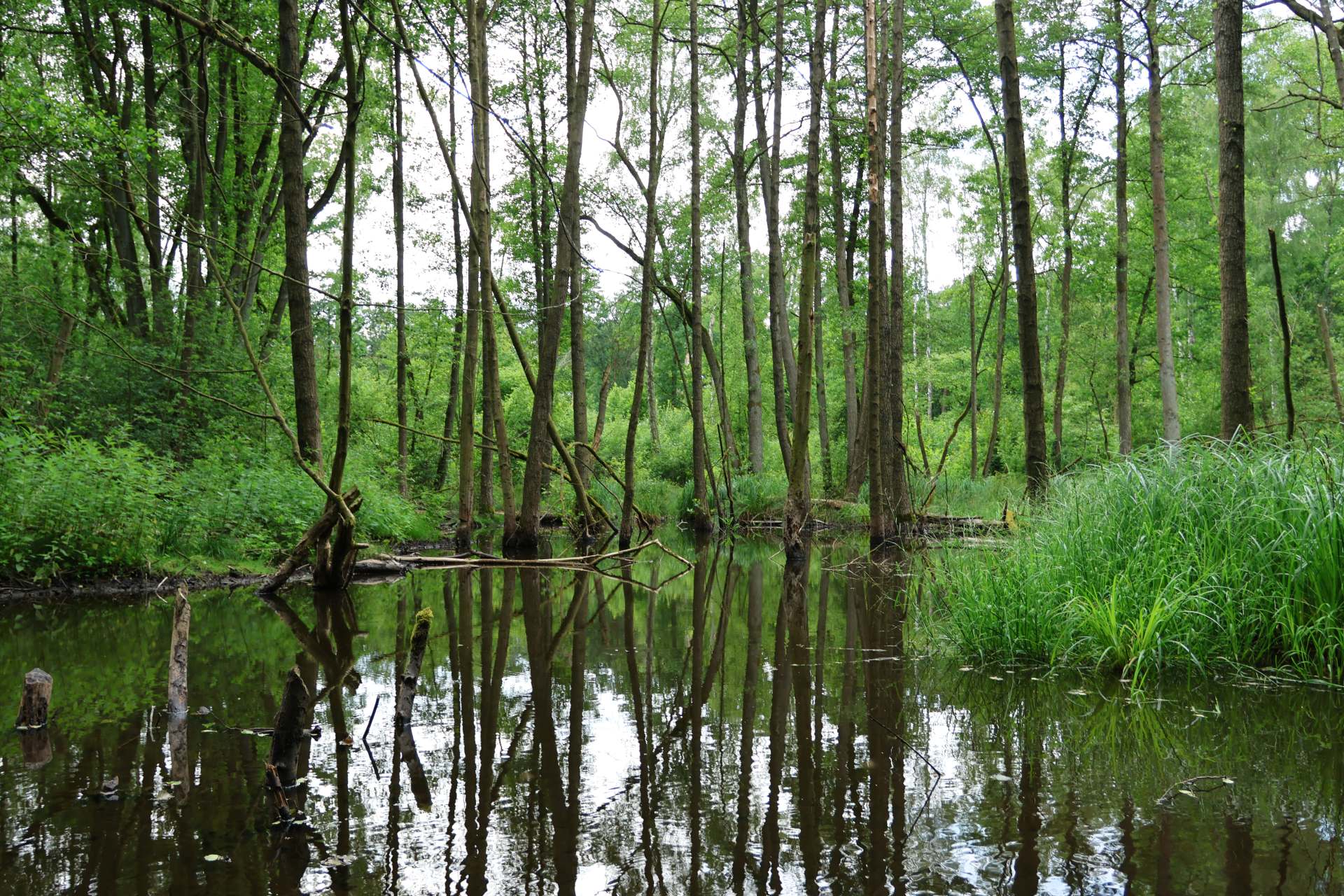Healthy wetlands are vital for biodiversity, climate, and local communities. In the Oder Delta, the rewetting of the Rożnowo Plain is showcasing the transformative impact of rewilding and delivering wide-ranging benefits.
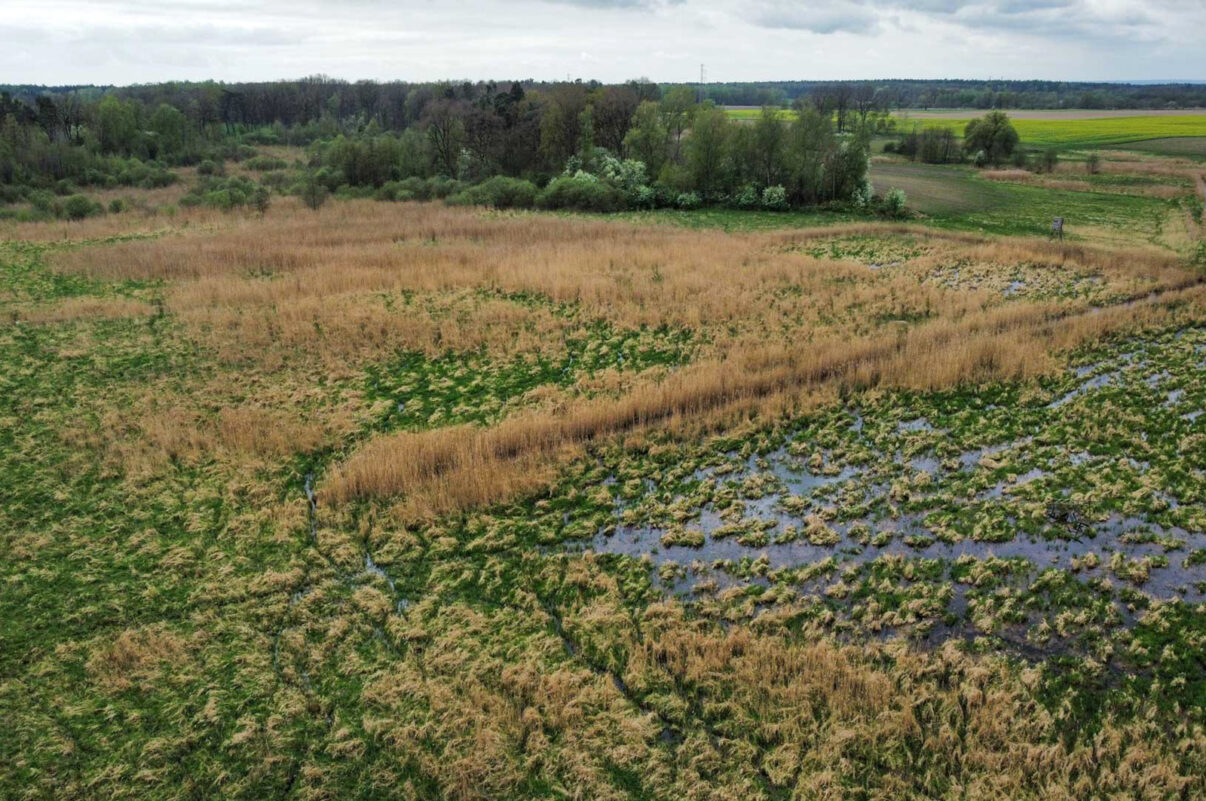
Maciej Sobieraj / Fundacja dla Klimatu i Bioróżnorodności
Revitalising a watery ecosystem
In the Oder Delta, a vast watery ecosystem on the German-Polish border, the restoration of a wetland is highlighting the transformative impact of rewilding. Water is returning to 26 hectares of the Rożnowo Plain, a wetland located within the Oder Delta rewilding landscape on the floodplain of the Ina River. Marking a significant milestone in delta rewilding efforts, revitalisation of the ecosystem is offering a brighter future for an array of wildlife species and benefitting local farmers and communities.
Human interventions in the Oder Delta have widely disrupted the natural flow of water and negatively impacted ecosystems. Many areas surrounding rivers have been drained and the land reclaimed for human activity, such as agriculture and forestry. People straightened, deepened, and embanked riverbeds, while numerous barriers such as dams and weirs further restrict waterways.
Today, in collaboration with local partners, the Rewilding Oder Delta team are rewetting peatlands, improving water retention, and restoring riparian connectivity. The return of more natural water flow is bringing positive change, boosting biodiversity, enhancing the positive climate impact of the landscape, and enriching lives and livelihoods.
European wetlands in decline
As long-term residents of the Rożnowo area on the Polish side of the Oder Delta, Marta Hapoń-Sobieraj and Maciej Sobieraj are well aware of the ecological value of the local landscape and the challenges posed by human activity. While the mosaic of wetlands, marshes, and peatlands on their doorstep is home to a wide range of wildlife species, many areas have been drained for agriculture.
“A few years ago, a local farmer here decided to intensify his land use,” explains Maciej. “He wasn’t aware of the damage he was doing, not only to his land, but also to neighbouring plots. By draining water, he wiped out riparian habitats that were supposed to serve as a legal basis for establishing an adjacent protected area.”
This small-scale intervention reflects a European-wide trend. Despite their ecological importance, more than half of the continent’s wetlands have been lost over the past 300 years, with Poland one of the countries most heavily impacted. During the last century, large-scale drainage devastated Poland’s once extensive wetlands, which were formerly considered unproductive wastelands. The loss of over four million hectares of wetland habitat led to a dramatic decline in water quality and the number of species living there.
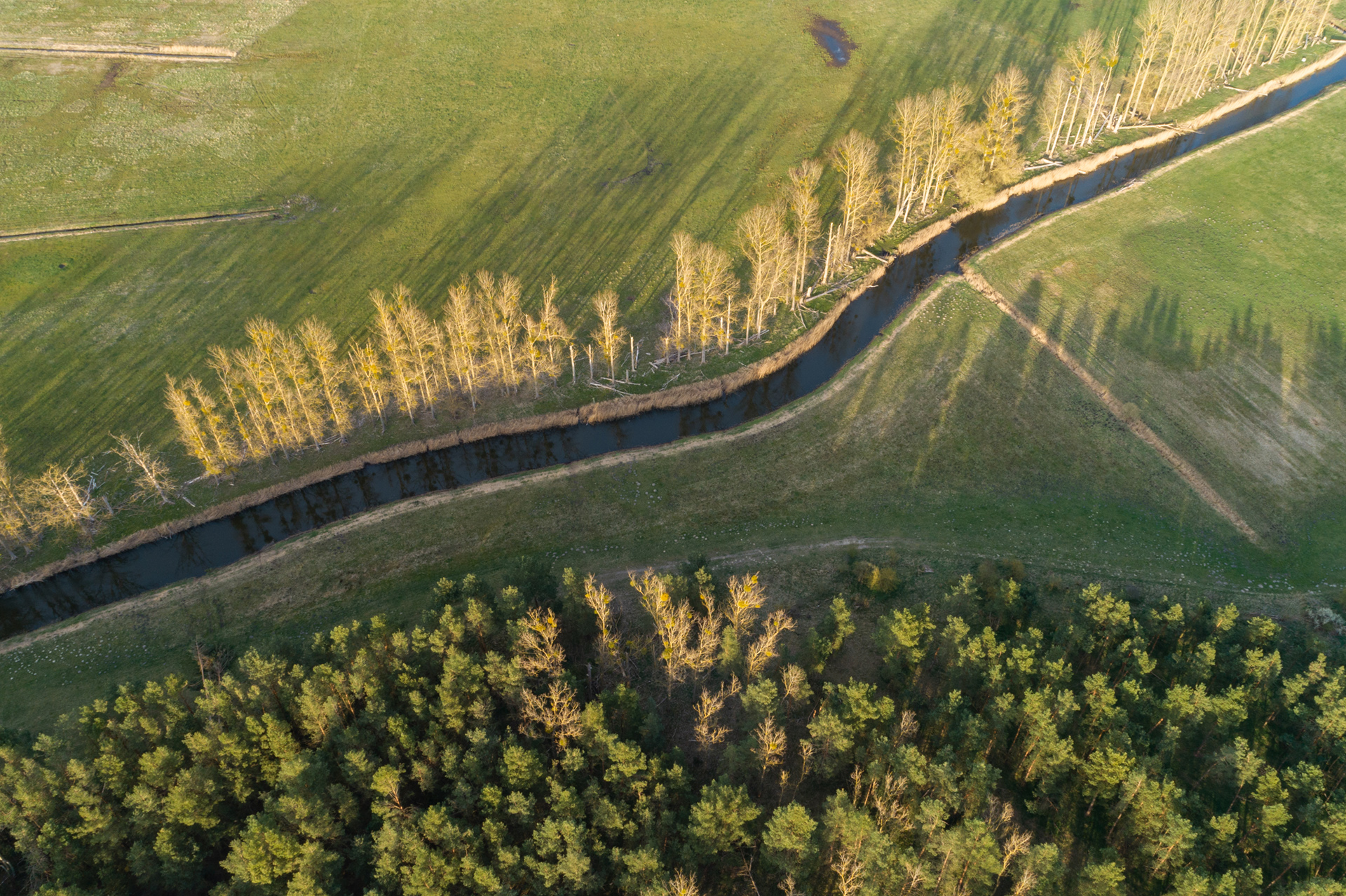
Florian Möllers
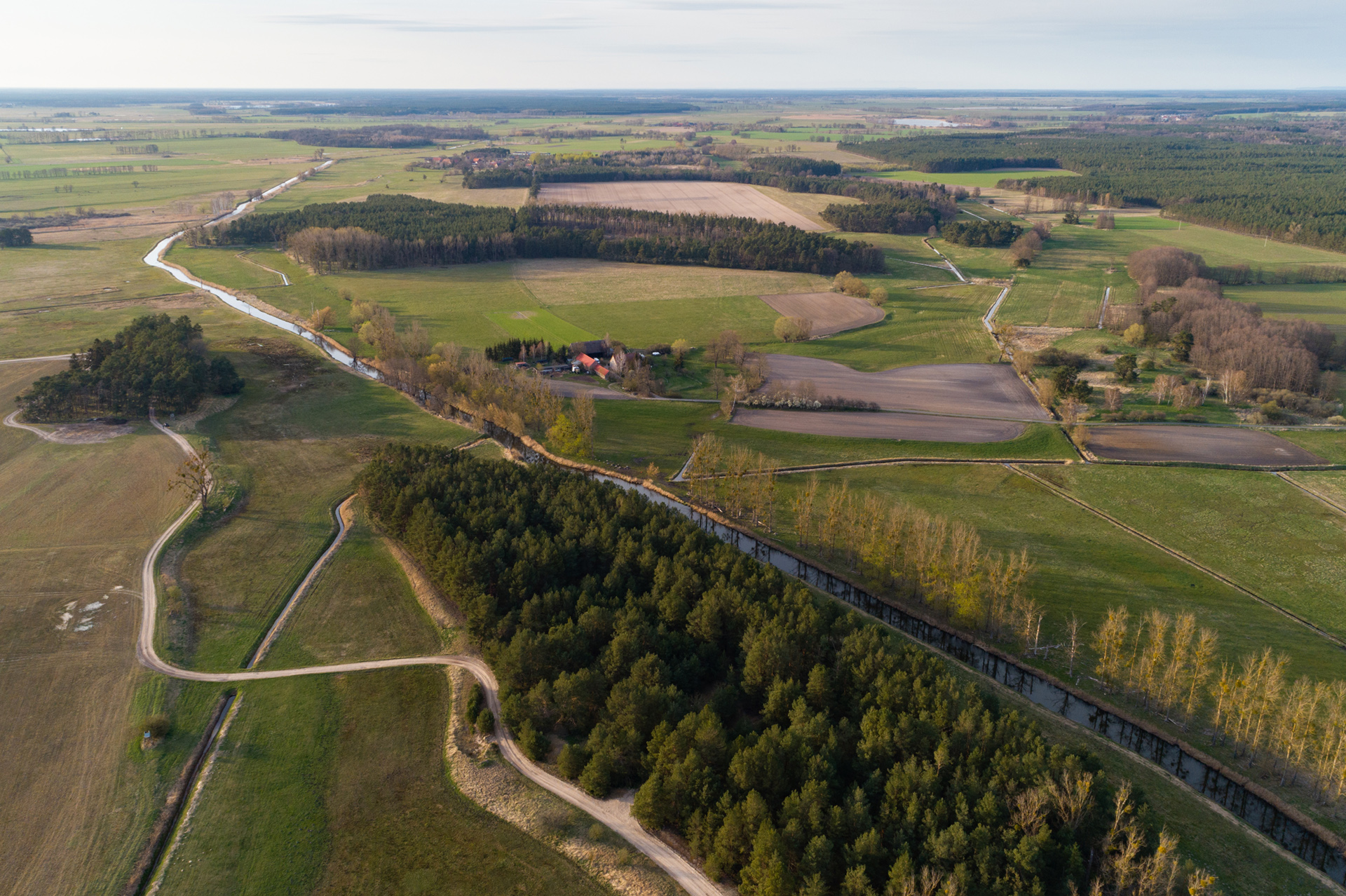
Florian Möllers
Towards wetland restoration
In 2023, to address the challenges faced by their local landscape, Marta Hapoń-Sobieraj and Maciej Sobieraj established the Foundation for Climate and Biodiversity.
“The condition of the Ina River and its watershed is close to my heart,” says Maciej. “The Rożnowo area is a valuable source of water for the Ina River and home to some amazing biodiversity. In 2001, the Maszewo Municipality identified the Rożnowo Plain for protection, but no further action was taken. My wife Marta and I finally decided that we had to do something and began looking for ways to enable nature recovery in this area, which is a critical refuge for wetland birds and amphibians.”
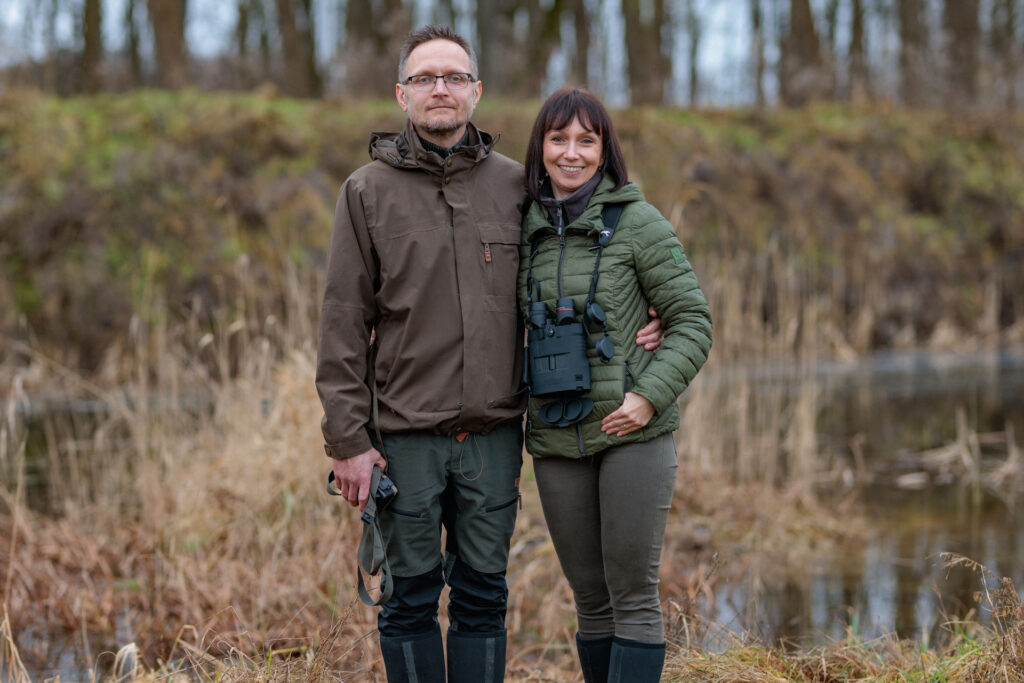
Rewilding Oder Delta
Beavers as agents of change
Thanks to close cooperation with Rewilding Oder Delta team, Marta and Maciej obtained funding from Rewilding Europe to purchase and protect nearly 26 hectares of the Rożnowo Plain. With beavers returning to the area around a decade ago, the couple then left the eco-engineers to go about their business.
“The beavers continue to do a great job at restoring natural processes,” says Marta Hapoń-Sobieraj. “All they needed was for us to stop interfering. They have reshaped the landscape in such a way that water doesn’t escape, and their positive impact can be seen across an extensive area. Including adjacent forest areas, we can confidently talk about rewetting 80 hectares. We are witnessing the revitalisation of the landscape everywhere, with alder forests regenerating and new habitats appearing.”
Flourishing biodiversity
This revitalisation of the landscape is supporting widespread wildlife comeback.
“We’ve recorded the presence of all species that could potentially live here, including the rarest ones,” says Maciej. “In the first year, a pair of black storks found a good spot here and raised young. This year, a pair of lesser spotted eagles – which are also called ‘frog eaters’ – built a new nest on the edge of the wetland, attracted by the return of amphibians. We’ve also observed wolves, badgers, polecats, and otters, and a huge range of bird species. Recently, we even encountered a European bison.”
The small rise in water level resulting from the rewetting of the Rożnowo Plain also offers hope for the drought-vulnerable Małka – a tributary of the Ina River which in recent years has dwindled to a trickle. Migratory trout and river lamprey used to spawn in the Małka, and the hope is that these species will return as water flow in the river is gradually restored.
Positive climate impact
The dam-building activities of Rożnowo’s beavers slow the flow of water through the catchment, allowing surrounding land to re-absorb it. This is particularly important, considering the wider Kliniska Forest District is a high-risk drought and wildfire zone. Rewetting the Rożnowo Plain has also had a positive climate impact – by rewetting areas of peat it prevents unwelcome carbon emissions.
“Healthy peatlands are carbon sinks,” explains Maciej. “If the peatland here was drained, it would release an average of 14 tonnes of carbon per hectare every year.”
With their tree-felling and localised foraging, beavers help to create complex habitats that can buffer the impacts of climate change. Studies show that beaver wetlands can act as a vital source of freshwater during periods of drought, reduce the impact of flooding by slowing the advance of floodwater, and act as natural firebreaks in case of wildfires.
“Not everyone appreciates the beavers’ actions,” Marta admits, outlining how simple measures like flow pipes in dams effectively control the water level, minimising localised flooding. “This works well, satisfying both beavers and people. The animals function peacefully, the peatland remains wet, and crops and roads are safe.”
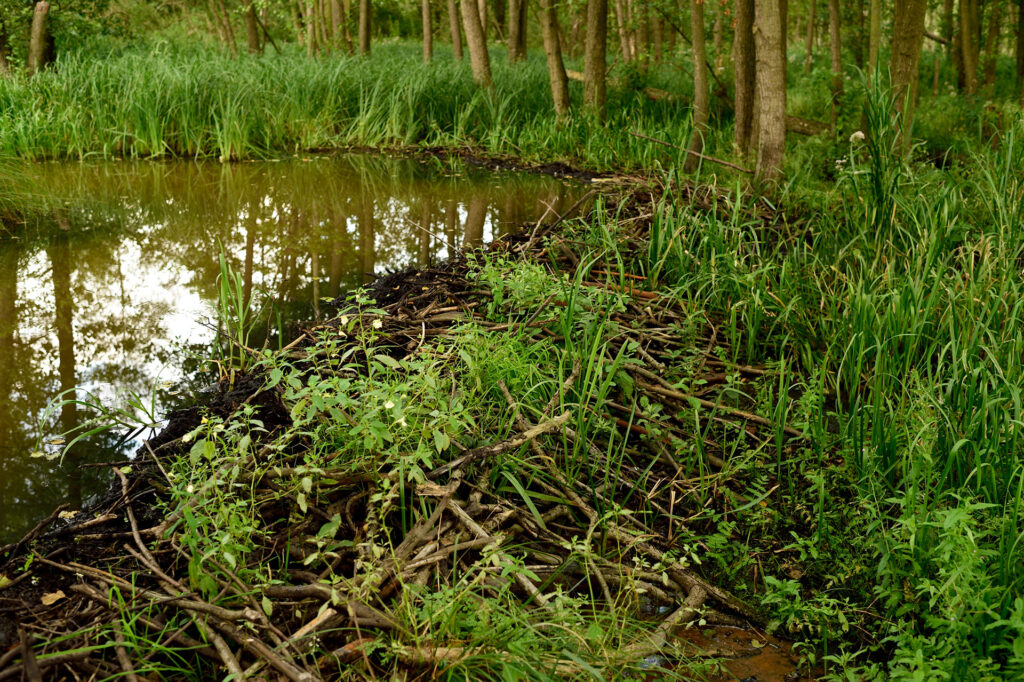
Solvin Zankl / Rewilding Europe
Stakeholder collaboration
Beyond monitoring the ecological benefits of rewetting, Marta and Maciej team up with fellow residents in cleaning rivers and planting trees. Farmers and landowners are supported in adopting practices that align with rewilding.
“Foresters now understand that areas near streams and wetlands host 90 percent of amphibian populations and avoid harvesting in such places,” says Maciej.
For farmers trying to improve yields in areas adjacent to wetlands, there are also advantages to rewetting.
“Wetland vegetation accumulates nitrogen, acting like a biological treatment plant, filtering wastewater, pollutants, and fertilisers,” explains Maciej. “Nutrient levels are enhanced, soils are rehydrated, and a burgeoning microclimate is born. The end result: crops such as corn grow better.”
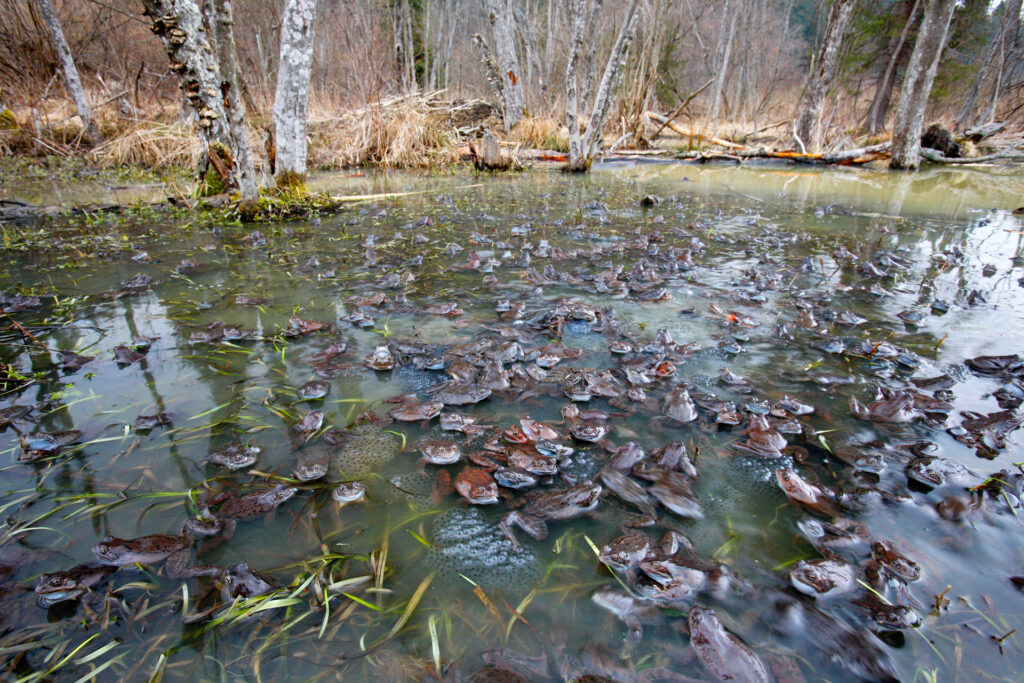
Grzegorz Lesniewski
A model for future conservation
With wetlands proving indispensable in the fight against climate change, the Oder Delta’s resurgence offers hope for the future of Europe’s natural landscapes.
Alongside the cooperation between the Oder Delta rewilding team, the Foundation for Climate and Biodiversity, and other partners, the rewetting of the Rożnowo Plain demonstrates the importance of balancing conservation with local livelihoods and is a testament to what can be achieved when we choose to work with nature rather than against it.
This story is based on an interview by Magdalena Ulrich of the Rewilding Oder Delta team.

